
What is the Importance of Heavy Castor Wheels in Industrial Applications
In the realm of industrial applications, the significance of Heavy Castor Wheels cannot be overstated. As per a recent report by MarketsandMarkets, the global caster market is projected to reach $4.5 billion by 2025, driven by the increasing demand for efficient mobility solutions in various sectors such as manufacturing, logistics, and healthcare. Heavy Castor Wheels, designed to support significant weight loads while ensuring stability and maneuverability, play a crucial role in optimizing operational efficiency. Additionally, their ability to withstand harsh conditions and reduce floor contact friction not only enhances safety but also extends the lifespan of equipment. As industries continue to evolve and prioritize automation and streamlined processes, the role of Heavy Castor Wheels will become even more pivotal, establishing them as an integral component in the infrastructure of modern industrial environments.
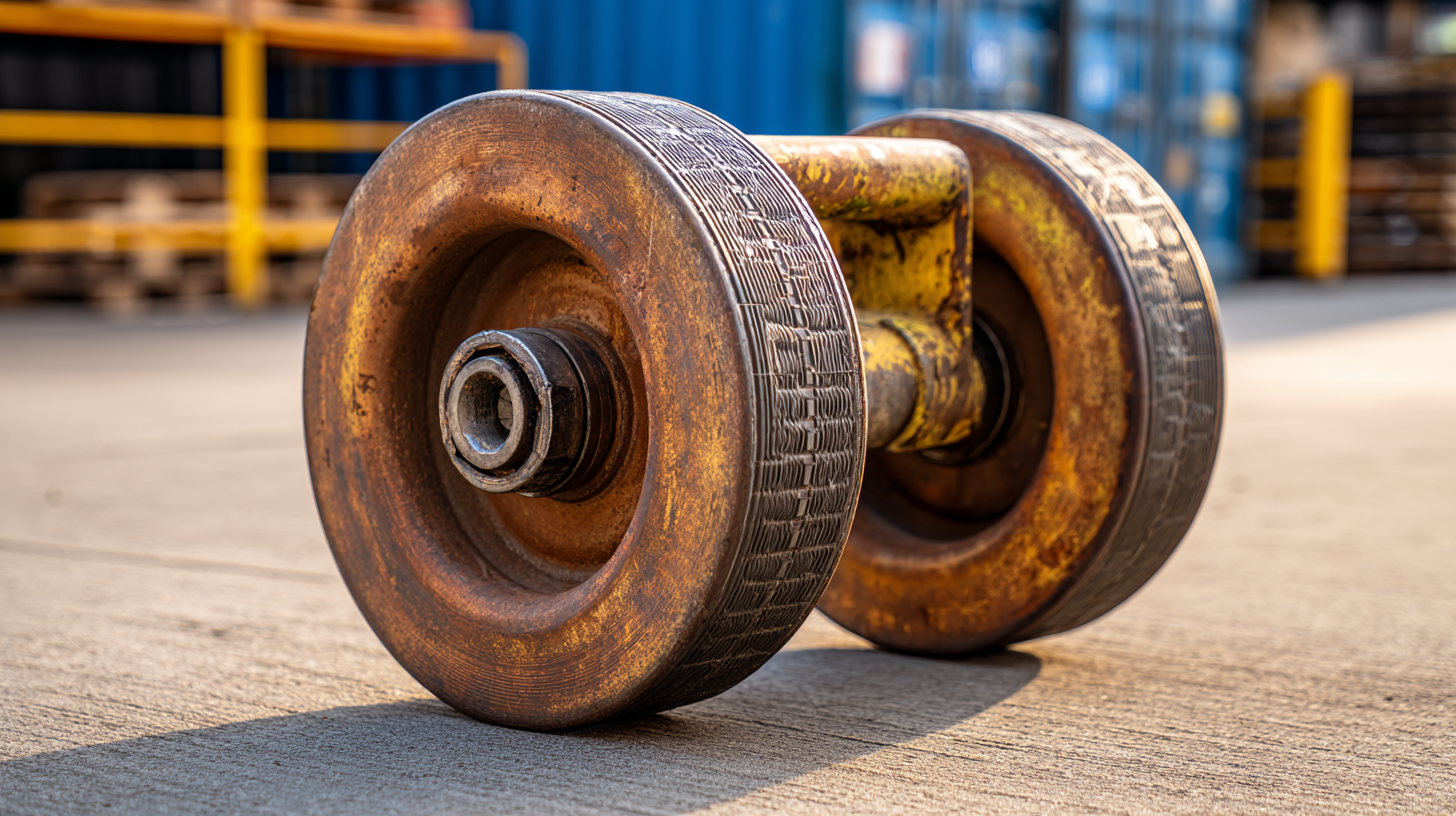
Key Benefits of Heavy Castor Wheels for Industrial Mobility
Heavy castor wheels play a crucial role in enhancing mobility within industrial environments. Their robust construction is designed to bear significant weight, making them ideal for moving heavy machinery and equipment. This durability minimizes the risk of wheel failure, ensuring safer operations. Heavy castor wheels are often made from high-quality materials, which provide resistance against wear and tear, thereby reducing maintenance costs and extending the lifespan of both the wheels and the equipment they support.
Another key benefit of heavy castor wheels is their smooth maneuverability, which enhances operational efficiency. With features like swivel capabilities, these wheels allow for easy navigation in tight spaces, making it simpler to position heavy loads where needed. This agility not only increases productivity but also contributes to a safer workplace by reducing the physical strain on workers tasked with moving heavy items. Overall, investing in heavy castor wheels is essential for any industrial setting aiming to optimize mobility and efficiency.
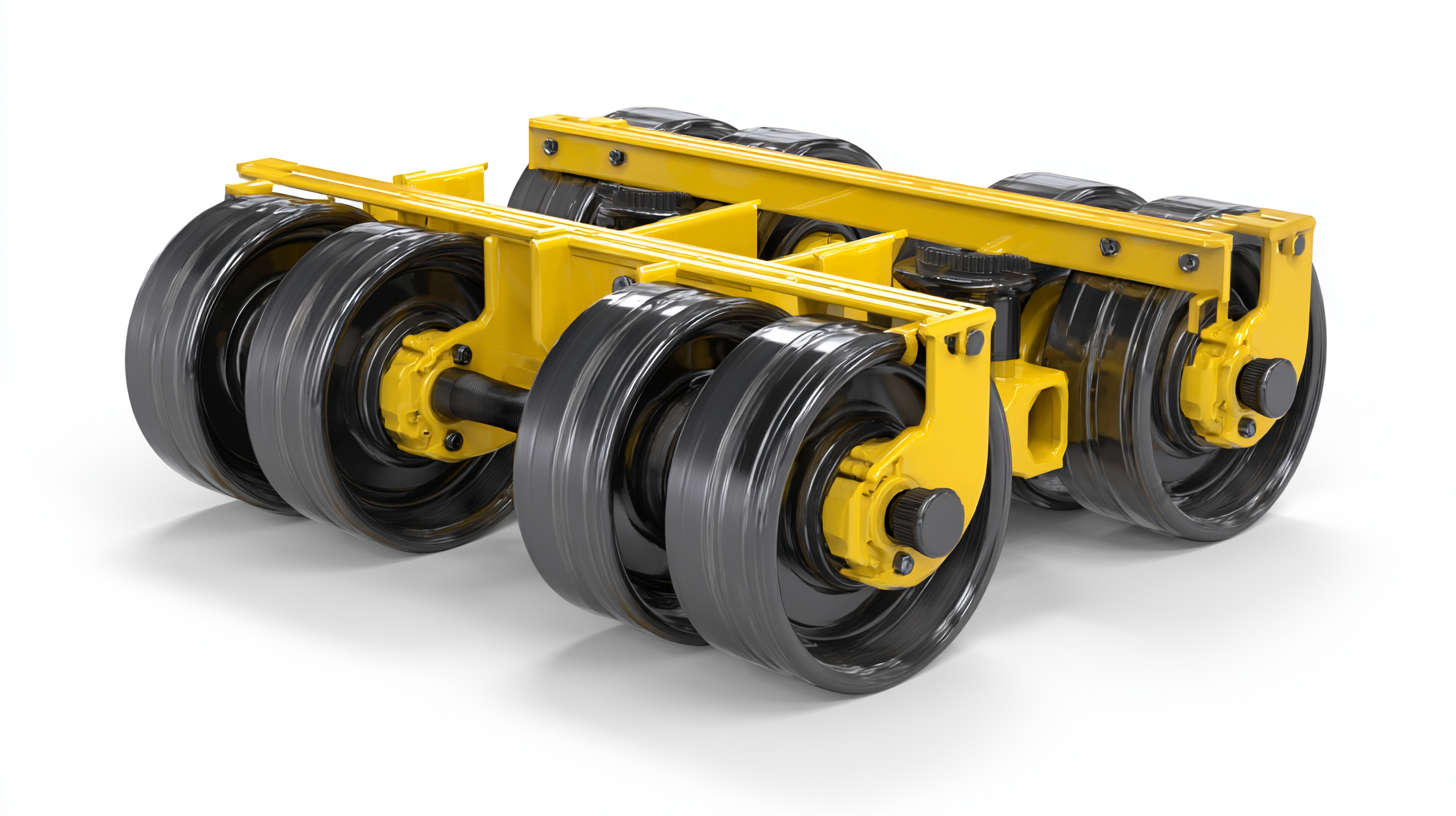
5 Factors That Make Heavy Castor Wheels Essential for Equipment Durability
Heavy castor wheels play a crucial role in enhancing the durability of equipment across various industrial applications. One primary factor is their superior load-bearing capacity. According to a report by Industrial Wheels Research, heavy-duty castor wheels can support loads exceeding 2,500 pounds, which is essential for machinery that operates in heavy-load environments like manufacturing and warehousing. This capability helps to reduce wear and tear on both the wheels and the equipment they support, ultimately resulting in lower maintenance costs.
Another significant aspect is the material composition of heavy castor wheels. Many are constructed from high-quality elastomers or polyurethane, which provide excellent shock absorption and resistance to harsh chemicals. A study published in the Journal of Industrial Technology found that equipment using heavy castor wheels made from these materials experienced a 30% reduction in vibrations, leading to enhanced stability and longevity of machines. Additionally, their swivel features enable easy maneuverability, increasing operational efficiency and reducing fatigue among workers handling heavy loads. Thus, investing in heavy castor wheels is vital for ensuring the durability and reliability of industrial equipment.
3 Ways Heavy Castor Wheels Enhance Safety in Industrial Settings
Heavy castor wheels play a crucial role in enhancing safety within industrial environments. Firstly, these wheels are designed to support heavy loads, distributing weight evenly and minimizing the risk of tipping or instability. This stability is essential in preventing accidents that could result in injuries or damages. By using heavy-duty materials and robust construction, these castor wheels ensure that machinery remains securely in place, even during movement or maneuvering.
Secondly, heavy castor wheels are often equipped with advanced braking systems. These brakes lock the wheels in place, preventing unwanted movement when machinery is stationary. This feature is particularly important in dynamic workplaces where machinery is frequently loaded and unloaded. The secure footing provided by these brakes reduces the chances of equipment rolling unintentionally, which can lead to hazardous situations.
Lastly, the smooth mobility offered by heavy castor wheels helps in reducing worker strain. By facilitating easier movement of equipment, workers are less likely to exert excessive force, which can lead to injuries over time. This ergonomic advantage promotes a safer work environment, allowing employees to focus on their tasks without the added risk of accidents arising from cumbersome machines.
What is the Importance of Heavy Castor Wheels in Industrial Applications - 3 Ways Heavy Castor Wheels Enhance Safety in Industrial Settings
| Dimension | Description | Impact on Safety | Examples of Use |
|---|---|---|---|
| Load Capacity | Heavy castor wheels can support significant weights, essential for industrial machinery. | Reduces the risk of equipment failure or tipping, enhancing overall workplace safety. | Transporting heavy goods in warehouses and factories. |
| Brake Mechanism | Many heavy castor wheels come with built-in brakes to secure stationary equipment. | Prevents unintended movement, reducing accident risks in busy areas. | Used in assembly lines where equipment needs to be locked in place. |
| Material Composition | Made from durable materials like polyurethane or rubber for better traction and shock absorption. | Enhanced grip on surfaces reduces slips and improves control during movement. | Ideal for uneven surfaces in factories or outdoor applications. |
Top 4 Heavy Castor Wheel Materials for Optimal Performance
When it comes to industrial applications, the choice of materials for heavy castor wheels is crucial for ensuring optimal performance and durability. According to a report by the Industrial Equipment Manufacturing Association, nearly 35% of equipment failures in warehouses can be traced back to poor-quality wheels. Thus, selecting the right material not only enhances mobility but also reduces maintenance costs significantly.
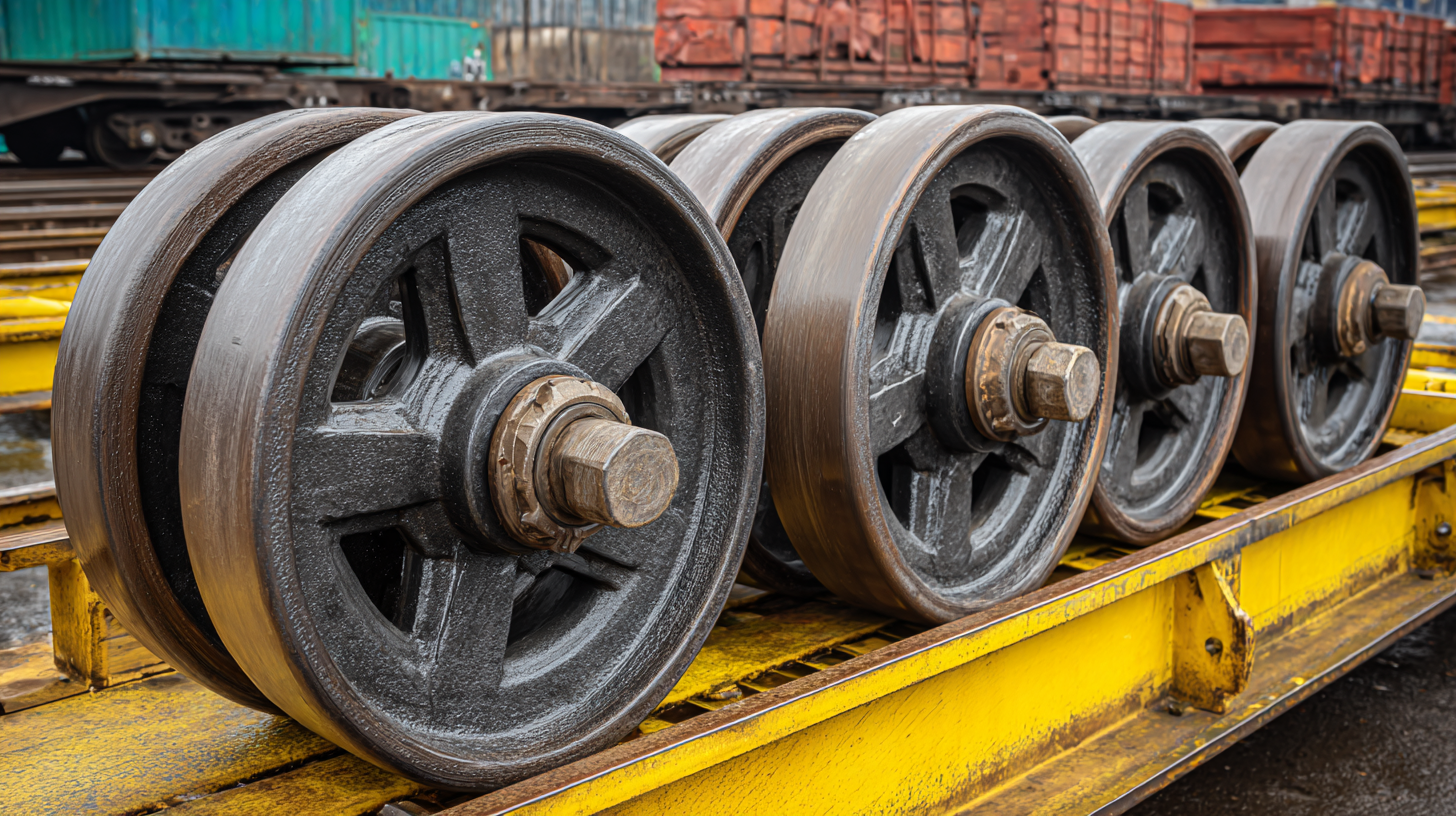
The top four materials commonly used for heavy castor wheels include rubber, polyurethane, steel, and nylon. Rubber wheels are known for their excellent shock absorption and provide a quiet operation, making them ideal for environments where noise reduction is a priority. Polyurethane offers the best of both worlds, combining durability and high load capacity while being resistant to wear and tear, thereby extending the service life of the wheels. Steel wheels are often utilized in heavy-duty applications due to their unmatched strength and ability to withstand extreme conditions, although they may sacrifice some mobility and noise isolation. Lastly, nylon wheels provide a lightweight option with excellent chemical resistance and are suitable for environments with exposure to corrosive substances.
Overall, the material you choose for heavy castor wheels can drastically impact not only the performance of your equipment but also the efficiency of your operations. Selecting the appropriate castor wheel material based on specific industrial needs is essential for maximizing productivity and minimizing downtime.
6 Considerations When Choosing Heavy Castor Wheels for Your Business
When selecting heavy castor wheels for industrial applications, there are several key considerations to keep in mind. First and foremost is the load capacity. Assessing the weight of the equipment or materials that the castors will support is crucial. Ensure that the chosen wheels can handle not just the static load but also any dynamic forces they may encounter during movement.
Another important factor is the wheel material. Heavy castor wheels come in various materials such as rubber, polyurethane, and steel. Each material has its own advantages depending on the floor surface and the environment in which they will be used. For instance, rubber wheels are better for protecting floors, while steel wheels may be more suitable for harsher, more abrasive conditions.
Additionally, consider the wheel size and tread design, as these features significantly influence maneuverability and stability. Larger wheels generally provide better performance over uneven surfaces, while a tread designed for traction can enhance safety and ease of movement. Lastly, don’t overlook swivel functionality, as this can greatly improve maneuverability in tight spaces, making it easier to navigate around obstacles in an industrial setting. Selecting the right heavy castor wheels based on these considerations can enhance efficiency and safety in your operations.
Related Posts
-
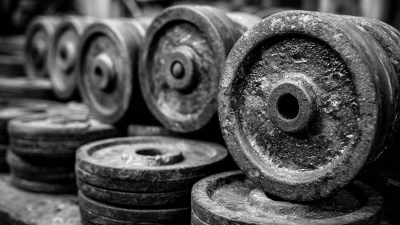
7 Essential Tips for Choosing the Best Heavy Castor Wheels for Your Needs
-
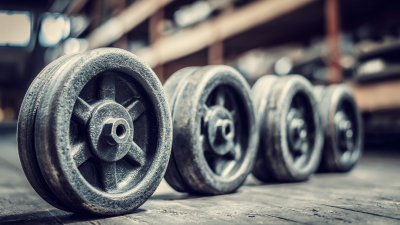
The Future of Cast Iron Casters in Sustainable Manufacturing
-
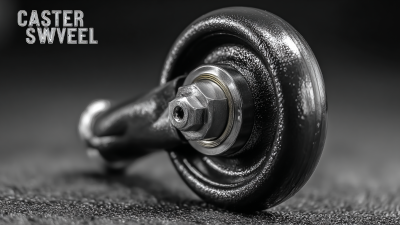
How to Find the Best Caster Swivel Wheel Manufacturer for Your Business Needs
-

Innovative Best Furniture Castor Designs for Modern Global Buyers
-

The Ultimate Guide to Sourcing the Best Antique Metal Casters for Your Projects
-
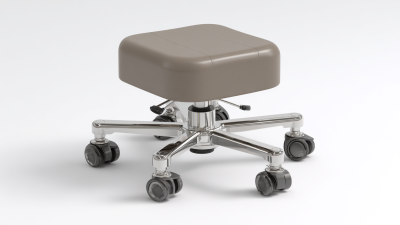
Solutions for Choosing the Best Furniture Castor Wheels for Your Global Procurement Needs
